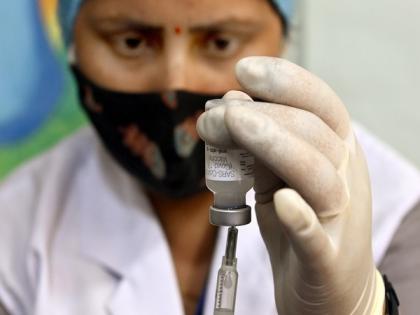SEC recommends India's first indigenously developed vaccine against cervical cancer for 9 to 26-year age group
By ANI | Published: June 15, 2022 11:04 PM2022-06-15T23:04:27+5:302022-06-15T23:15:02+5:30
The subject expert committee meeting that was scheduled today to discuss Serum Institute of India's (SII) indigenously developed Quadrivalent human papillomavirus (qHPV) vaccine against cervical cancer, has recommended regular market authorisation for above 9 to 26-year-old male and female, according to sources.

SEC recommends India's first indigenously developed vaccine against cervical cancer for 9 to 26-year age group
The subject expert committee meeting that was scheduled today to discuss Serum Institute of India's (SII) indigenously developed Quadrivalent human papillomavirus (qHPV) vaccine against cervical cancer, has recommended regular market authorisation for above 9 to 26-year-old male and female, according to sources.
"The phase 3 data of vaccine was found satisfactory after which recommendations have been made," said the sources.
SII's Director of government and regulatory Affairs, Prakash Kumar Singh, on June 8 applied to the Drugs Controller General of India for market authorisation of the qHPV vaccine, said the sources.
In the application to the DCGI, Prakash Kumar Singh mentioned the antibody response of the vaccine against HPV types in all doses and age groups.
"It's expected that vaccine will be launched in the market before year-end. The qHPV will be India's first indigenously vaccine against cervical cancer. The Pune-based Serum Institute of India has applied for market authorisation after completing the phase 2/3 clinical trial with the support of the Department of Biotechnology to ensure its early availability in the country," said the sources.
Every year in India, 122,844 women are diagnosed with cervical cancer and 67,477 die from the disease.
The HPV vaccine reduces a woman's risk of cervical cancer. Men cannot develop cervical cancer, but the HPV vaccine may prevent genital warts, penile cancer, anal cancer, and the spread of HPV to sexual partners.
( With inputs from ANI )
Disclaimer: This post has been auto-published from an agency feed without any modifications to the text and has not been reviewed by an editor
Open in app